When it comes to commercial paving options for parking lots and other similar usages, two main types probably come to mind, asphalt, and concrete. These impermeable paving materials have long been the standard and continue to be popular, simply because they work. But they do create problems with permitting, flooding and maintenance.
In recent years a new type of pavement has burst onto the scene. This type of pavement possesses many benefits and it is poised to take over in the very near future.
Commercial Paving Options
Commercial paving is essential for many reasons, so let’s take a look at how the three main players in the paving industry stack up against each other so that you are well informed when it comes time to make your decision.
1. Asphalt
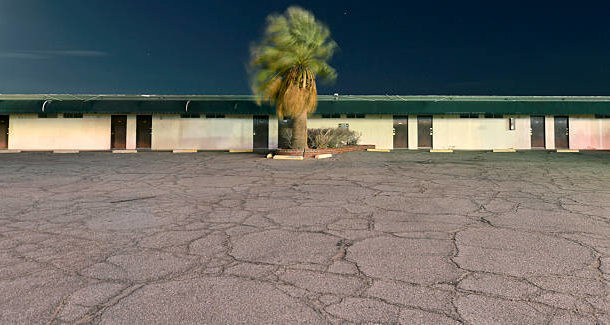
Asphalt has been the go-to choice for commercial parking lots for a while, mostly because of its price. Asphalt is one of the cheaper materials available for paving, and it does stand up (somewhat) well against the test of time. Asphalt can handle frequent traffic and does just fine in cold weather.
The cons of asphalt are many, however. Asphalt does not do well in hot weather, becoming sticky and leaving stains on shoes and tires as people travel over it. Asphalt also requires regular maintenance because it wears down over time and can develop cracks and ruts. Asphalt is also incredibly limited when it comes to aesthetics, with your only real option being black with yellow, white, or red lot lines.
Asphalt’s biggest problem is that it is impervious. This can cause flooding in urban areas which require offsetting drainage or detention ponds that can cost land and construction expense to owners. In large commercial projects, this can mean as much as 30% of land lost to the requirement of a detention pond to offset the asphalt impervious surface.
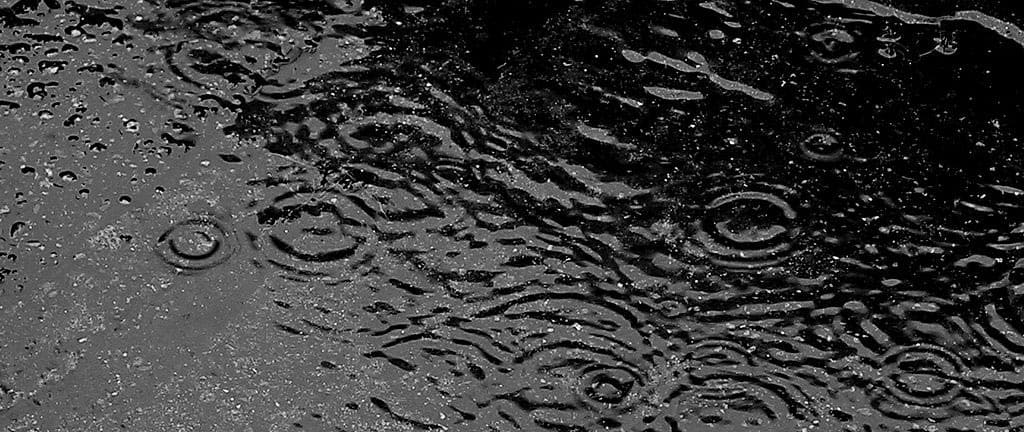
There are also other expenses associated with asphalt paving that can stack up and end up offsetting the initial low cost. Installation and maintenance are costly, despite the material itself being cheap. Asphalt also requires drainage because of its impermeability. These factors all add up to make asphalt a less than ideal paving material.
2. Concrete

The second most popular option for paving commercial parking lots is concrete. Unlike asphalt, concrete does well in hot weather. It’s also relatively low-maintenance. Concrete only requires a yearly cleaning and a joint sealing, as opposed to regular re-paving for asphalt. Another benefit of concrete pavement is that there are more options available in the form of different colors and textures.
Concrete, of course, is impervious and that means drainage or detention capacity or both will be required by local city codes. This reduces the amount of land available for use (by adding a detention pond), reduces the amount of parking for the business or facility.
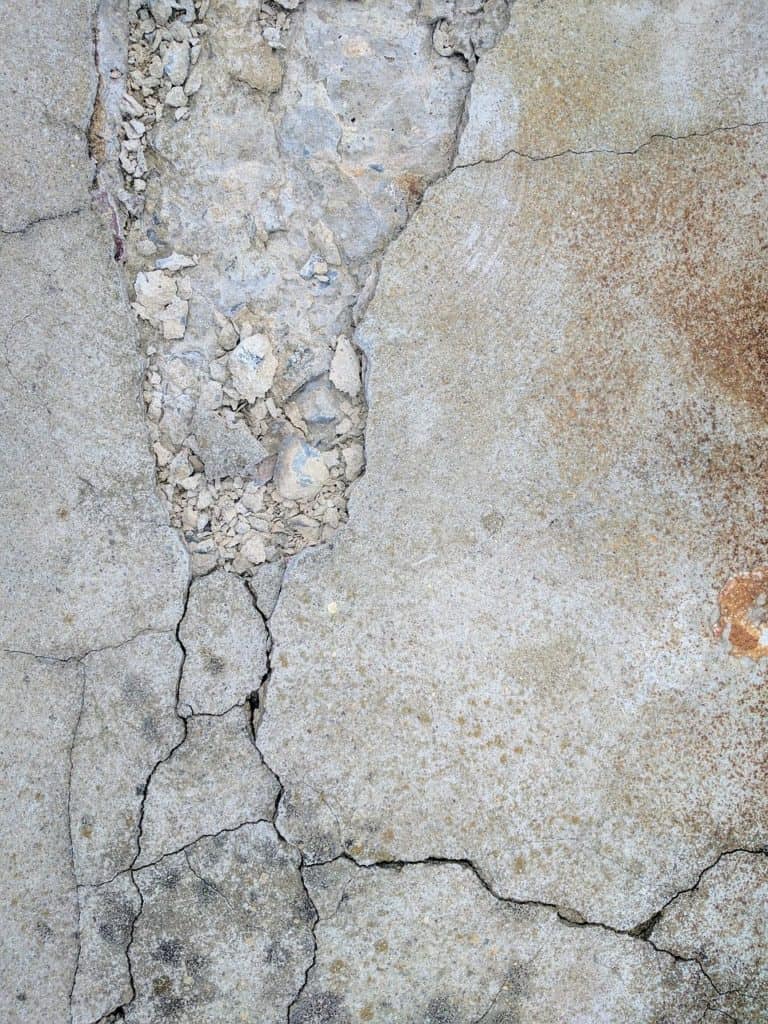
Concrete does have its fair share of other drawbacks too, though. It is terrible in cold weather, regularly cracking and breaking when going through freeze-thaw cycles. Concrete also takes a long time to install, nearly twice as long as asphalt does. And, like asphalt, it requires drainage systems to prevent flooding during heavy rain events. For these reasons, concrete is also a non-ideal option for most commercial businesses.
3. TRUEGRID Permeable Paving

TRUEGRID permeable paving is far and away the best paving option for commercial businesses going into the future. It is the least expensive paving material available, and it provides land savings and 100% land use as it is impervious Detention capacity is designed into the rock base below resulting in the entire area available for parking. It doesn’t require any regular maintenance or added expensive drainage systems that offset its low cost. It has a fast installation time and can usually be completed in ⅓ the time of traditional pavement days, maximum. Fast, inexpensive permeable paving.
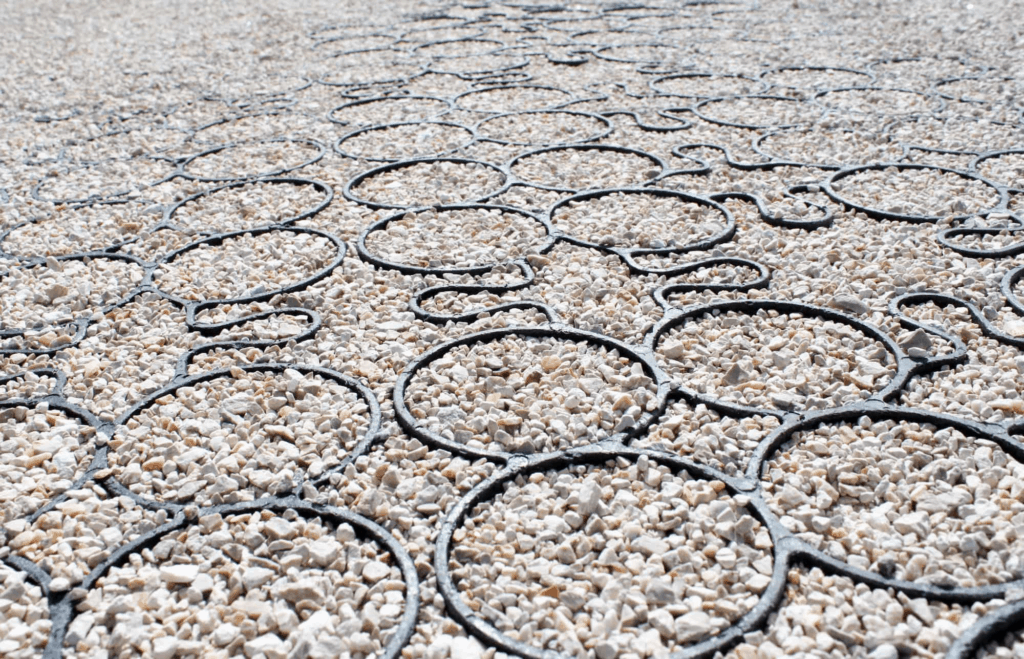
TRUEGRID commercial pavers are permeable, meaning they allow for the passage of liquids directly through them, eliminating flooding concerns and the need for additional drainage. The system drains at over 1000 inches per hour even after years of heavy use. This is better for the environment, and better for your pockets as well.
Made from 100% recycled plastic, TRUEGRID commercial pavers are also diverse when it comes to style and aesthetics. There are multiple different types of aggregates you can use to fill the pavers such as limestone and gravel. You can also add concrete or asphalt elements to your parking lot without sacrificing permeability. For lot lines, there are a variety of TRUEGRID SuperSpot parking markers available that can act as permanent, non-fading lines.
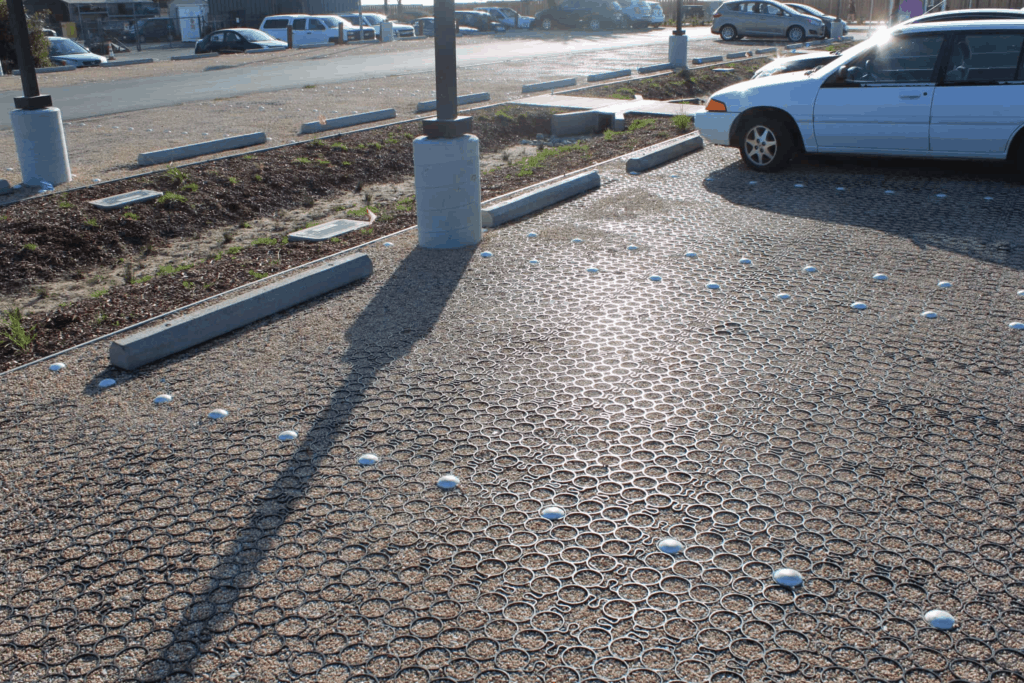
Another major benefit of TRUEGRID pavers is that they are the most eco-friendly paving material available. The pavers are produced, transported, and installed in the most eco-friendly manner possible. The installation process requires only the most basic materials, and the pavers themselves are proven to be as durable, if not more durable, as both concrete and asphalt.
There’s Only One Best Commercial Paving Option

If you’re looking to innovate wherever possible as well as save money and give your company a PR boost, the best thing you could do is install a TRUEGRID commercial paver parking lot. It is superior in terms of durability and cost-effectiveness, and it also comes with a built-in drainage system via its own permeability and requires almost zero long-term maintenance.
If you want the most eco-friendly, cost-effective, and durable commercial parking lot available without giving up anything in terms of stylistic options, it’s safe to say that TRUEGRID pavers are right for you. Don’t get stuck with a permanent asphalt or concrete parking lot when there’s a much better option right in front of you.



